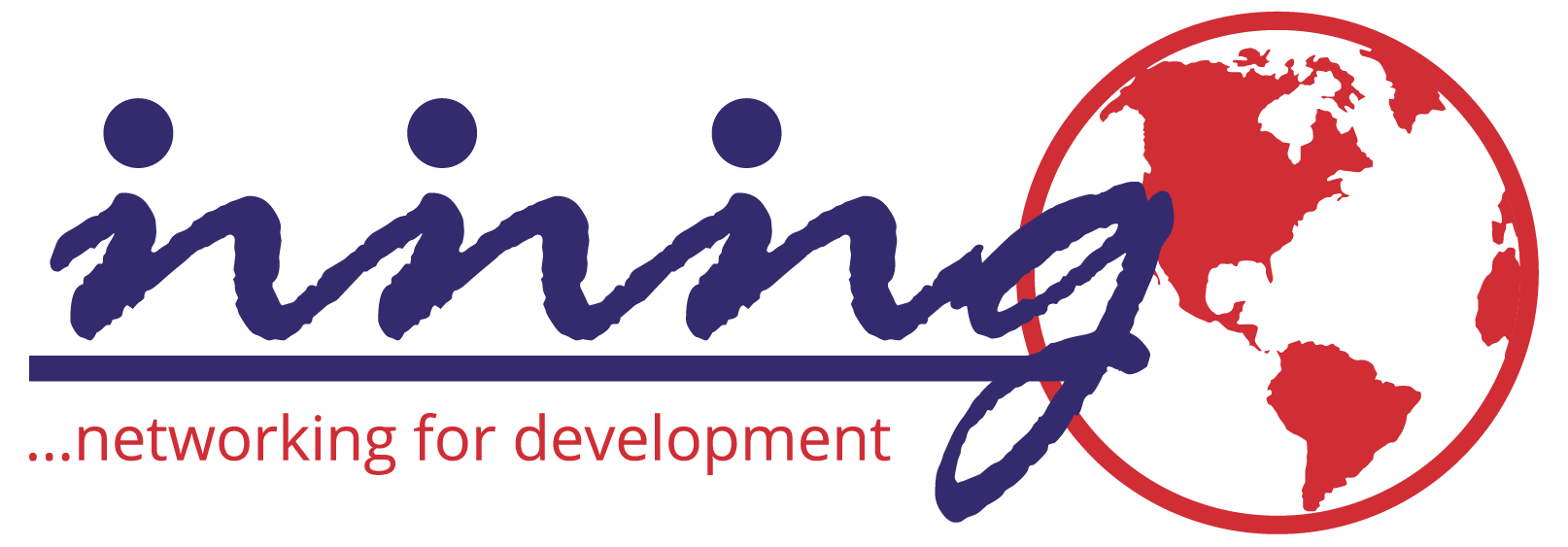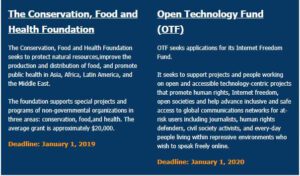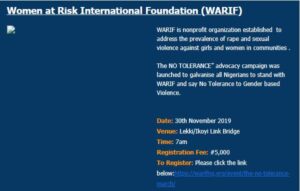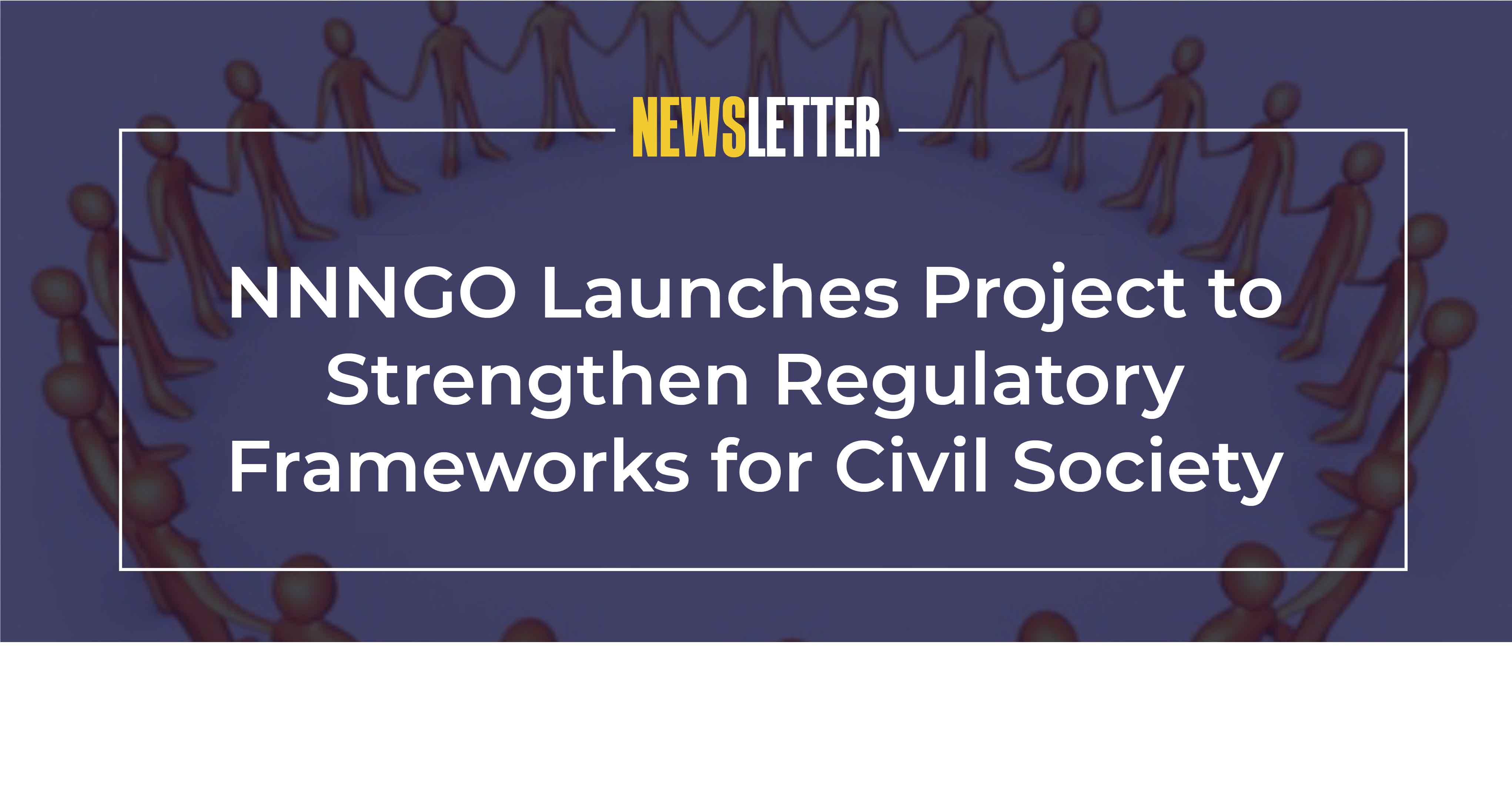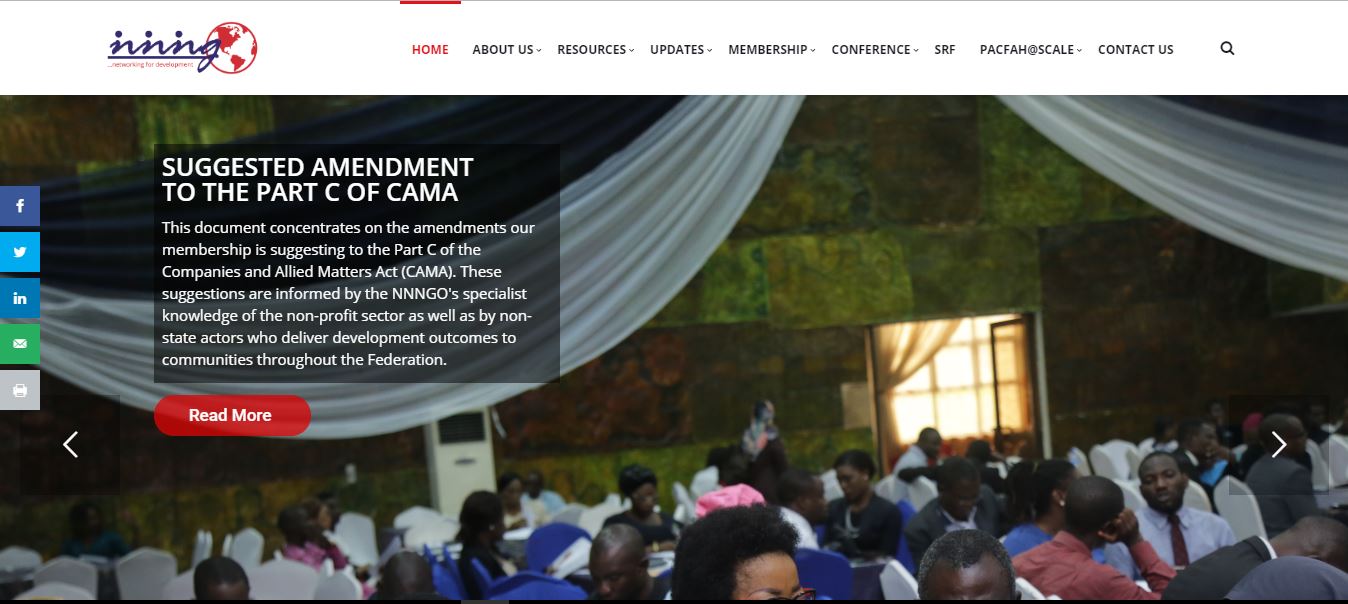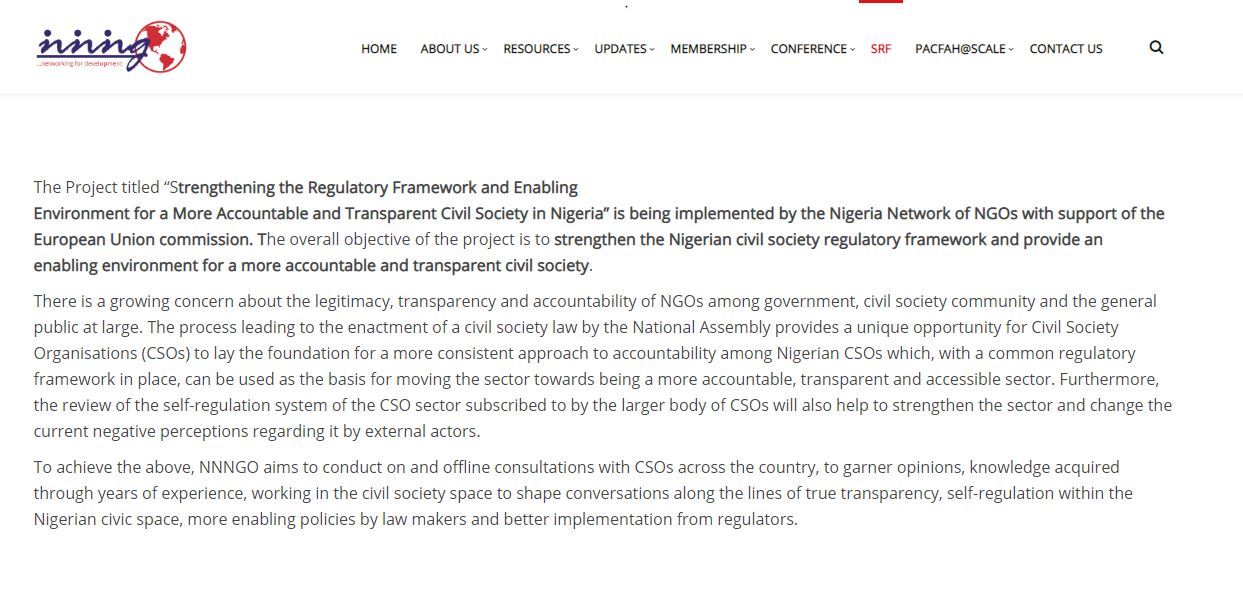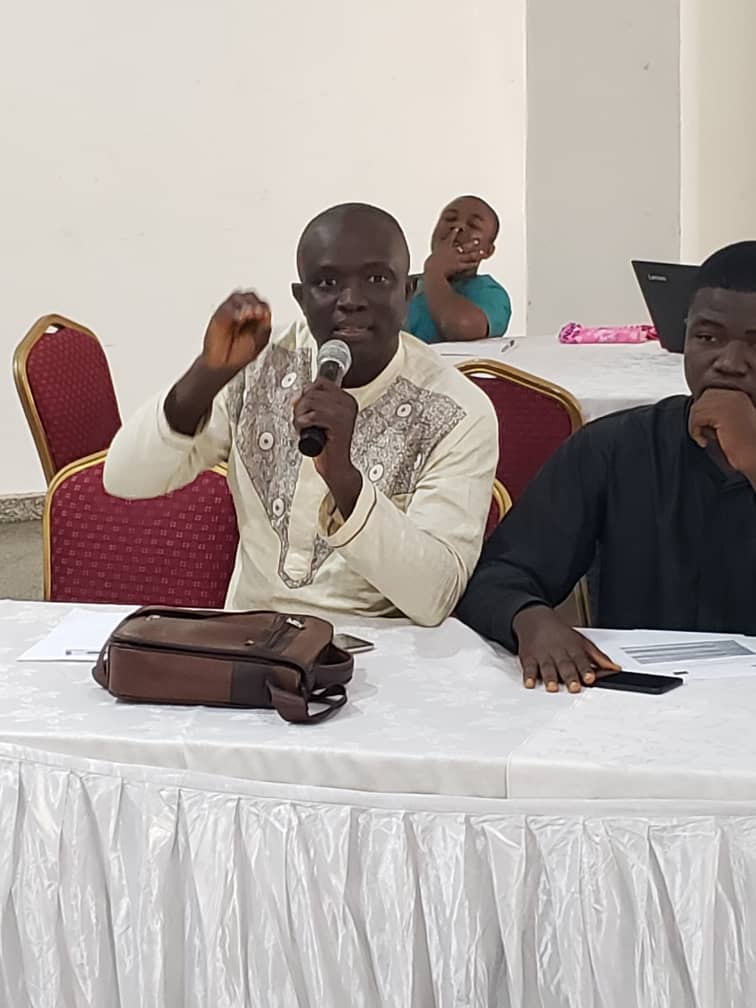NNNGO Launches Covid-19 State Action Tracker

Nigeria Network of NGOs announces today the launching of covid19.nnngo.org, a portal, dubbed “Covid19 State Action Tracker” that has been devoted to capturing data on state governments’ actions in containing spread of the COVID-19 disease across the 36 states of Nigeria. The portal was developed to increase citizens’ understanding and awareness of measures undertaken by governments in various states in relation to the pandemic, allowing for better tracking of governments’ activities and citizens’ reception to these measures in this period.
About the Tracker
The Covid19 State Action Tracker features a dashboard which contains; “Elements”, “Tables” along with “Charts” menus. Each of these menus open up into pages; that allow for visitors to find answers to COVID-19 related questions, provide detailed information on state datasets, including a map integration which gives a quick snapshot of real time statistics and live feeds from each state. These features, unique to the portal allow for easy accessibility to real time data specific to covid19 measures as circulated by each state government and are updated daily to capture new developments across different states as soon as they are announced.

With the help of this new portal, we are hoping to offer a particular resource, where citizens and citizen organisations can use information in the tracker to plan their travel, events and comply with measures on assembly and gatherings in ways that stop the spread of the virus.

said Oyebisi Oluseyi, Executive Director of the Nigeria Network of NGOs.
“It helps us as citizens to do a better job of being involved in the affairs of our country especially as the COVID-19 disease affects everyone and we must all come together to ensure it is contained. What we have done with the portal is to make information accessible to all individuals so that together we can track the measures our governments are undertaking to keep us safe, including using this information to plan our lives”, he added.
The NNNGO State Action Covid19 Tracker was developed by the IT team of the Network led by Matthew Afolabi who commented, “What makes this project particularly important for us is that it allows us to use technology for practical purposes and do good at the same time”. Adeola Odunsi, who led research for the project also noted, “The tracker serves as a credible hub of information on measures taken by government in this period and being able to use the data gotten from it for everyday purposes is admirable”
The portal features a public update button that allows visitors to provide updates and recommendations which can be uploaded to the site after a thorough review. Activities are underway to develop an advanced portal to cater for data capturing at the National level to track federal government’s measures in relation to the spread of the disease.
This publication is produced by the Nigeria Network of NGOs.

